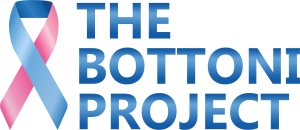I am a former male breast cancer patient, and I’m feeling very fortunate. Not fortunate that I had the disease, but fortunate with the outcome. Here’s my story.
I began feeling some uncomfortable sensitivity on one of my chest nipples when it came in contact with something as simple as clothing. I likened it to what skin feels like following a sunburn. I figured I had somehow irritated it and the feeling would disappear in a few days, but it didn’t. I began doing self-examinations over the next few days and was convinced that I could feel a small lump. It so happened that I had an appointment with my family physician scheduled so I mentioned it during that meeting. After some examination, I was referred to a radiologist for mammogram and ultrasound tests that took place a few weeks later, and which confirmed the presence of a tumor. Following these tests, the radiologist recommended taking a biopsy to confirm the initial findings and this was performed immediately during the same appointment.
Biopsy results confirmed the diagnosis of breast cancer, a consultation with the surgeon was held a few weeks later and mastectomy day surgery was performed a week after that.
Homecare visits took place on a regularly scheduled basis to change dressings and tend to the post-surgery needs.
It’s important to note that this entire process from the time of my initial visit with my family physician to my in-home post-surgery visits occurred over a period of only three months. This is one of the reasons that I feel fortunate. The physicians, specialists, technicians, nurses, hospital staff and the post-surgery care team are all to be commended for their expertise, treatment and care through this very proficient process. I felt like I was on a “fast track” even though I wasn’t. Every step of the way took place in relatively short order and everyone that I came in contact with made me feel comfortable and put me at ease, which otherwise could have been a very stressful situation. You hear a lot about long wait times, short staff, etc., but that is not always the case.
The next worrying step was to meet with the radiation oncologist and the medical oncologist to discuss post-surgery treatment plans based on the biopsy test findings using samples taken during the surgical process. This, I was not looking forward to, due to all of the medical treatment plans that I had become aware of over many years. However, the news was good, in that no further medical treatment would be required. Whew. This was a big one for me and I was fortunate once again.
As a final step I had a blood test taken that would be analysed by a specialized lab to determine if there were any factors that would abnormally predispose any of my descendants to contracting breast cancer. After three months, the results indicated that family descendants would not be in any increased danger of contracting breast cancer over and above the standard level of risk. Being aware of family hereditary cases was also a huge concern as it would bring with it a feeling of guilt for passing on a gene that could cause pain and suffering for loved family members. That would be very difficult to live with. But once again I felt very fortunate.
Of course I felt a great deal of apprehension, worry, doubt, anxiety and nervousness but everyone in the medical community that I met along the way, helped to dispel those feelings by exhibiting their thoughtfulness, efficiency, kindness and high skill and knowledge levels.
We have issues with our healthcare systems and much work needs to be done to rectify the shortcomings and improve the access and service, but commitment, dedication, funding and hard work will result in a system that we are all proud of and which will benefit us all.
If you’re reading this article with either interest or concern (or both), my message to you is:
- Because there have been very few cases reported in Canada, the disease is very rare and as such, the medical professionals have had little experience with affected male patients.
- Every case and its symptoms are different and treatments vary from case to case.
- Perform a regular self-examination and if anything appears to be different in appearance or to the touch, consult with a medical professional immediately. Time is of the essence.
- Do your research to learn as much as you can about the disease and treatment options, keeping in mind that most of what you will find will be applicable to women.
- If you’re comfortable, speak with others who may have been through the process (they will be hard to find).
The purpose of this website and this article is to offer support, build awareness and educate men in Canada who are concerned about contracting this disease, or who may have been diagnosed and who would like to be better prepared to face any impending challenge in dealing with this rare condition.
You may know someone who has been diagnosed and you would like to assure them that there are others who have experienced a positive outcome as a result of quick treatment. Or, you would like to encourage someone who is feeling awkward and is reluctant to have a medical examination, but if ignored, could result in very tragic consequences.
If you would like more information, or would like to assist us with building awareness by making a charitable contribution, please contact us at [email protected]
Thank you very much for your interest and support.
